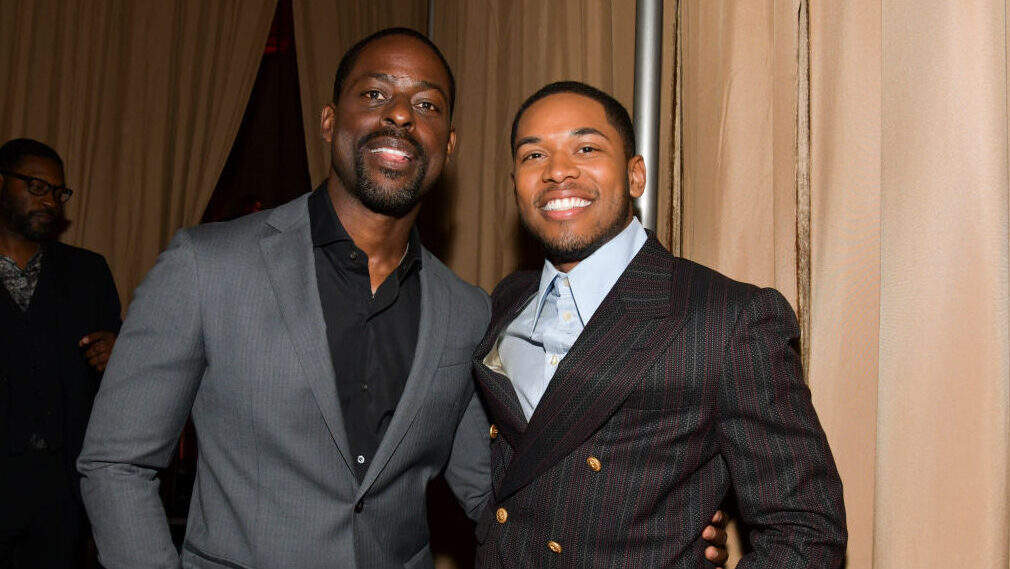Kelvin Harrison Jr. and Sterling K. Brown on acting and activism
The actors are featured in the latest episode of theGrio's 'Dear Culture' podcast on Black Hollywood.

Now more than ever, celebrities are speaking out about important issues and doing what they can to show their fans that they are one with the cause. Kelvin Harrison, Jr. and Sterling K. Brown are featured in the latest episode of theGrio‘s Dear Culture podcast on Black Hollywood to share their insights.
Harrison Jr. has starred in several powerful films that tackle race, class, and justice, proving that sometimes, the art is activism.
“My biggest thing is doing what makes sense for you authentically, you know? I do think there’ve been experts that have studied some of these matters for years, that people that have been in the studio system, there are people that run and work in these big production companies, and there are actors who have been doing this for a very long time. They have a lot of knowledge, a lot of experiences,” he tells theGrio.

“When the stuff started first happening, I was like, ‘we should look to artists that kind of went through this during the previous racial uprisings and the pandemics with the Spanish flu. What was going on during that time? Then it’s about trying to find peace within yourself to say, how do I participate? What is my intent? What do I want and how do I get that?”
Read More: Alfre Woodard, Kelvin Harrison Jr., Jonathan Majors and more nominated for Sprit Awards
Harrison isn’t big on social media, but that hasn’t stopped him from delivering impactful performances in films like Monsters, Luce, Waves, and Monsters & Men among others.
“The thing is, what am I comfortable doing and saying? For me, I’ve spent most of this time just trying to educate myself and have conversations with my own team and figure out what positions of power do I have?” he asks.
“What privileges do I have and how can I exercise what I truly believe in the best of my ability to get what I want across? That’s all I can really worry about. I think it’s about personal experience. I don’t know if there is a right or wrong way.”
The actor, who has had a Black manager since he started his career, says he isn’t interested in tokenism and points out that some activism happens behind the scenes.
“I think it is a complicated conversation sometimes…I’m not interested in people that are just doing stuff for the sake of. I’m not that person. I think there’s work to be done that people don’t see,” he continues.
“If I have to settle for tokenism to have a seat at the table, I’m not interested and that’s the bottom line for me. You have to make certain sacrifices in the process.”
Read More: Sterling K. Brown on voicing Black characters and speaking out: ‘All art is political’

Harrison’s Waves costar Brown knows his starring role in This Is Us makes his voice an influential one for so many people. He’s proud to use his platform to highlight important issues.
“I understand that people, for better or for worse, pay attention to people who come into their homes on a weekly basis. Because of the television show, I get to come into people’s homes 18 times a year and we become intimate with each other,” he explains.
“They feel as though they know who you are or they know that character so you have an opportunity to share things that are important in your life with people who already want to hear what you have to share,” he explains.
Brown knows his voice can be utilized in moments of crisis.
“When something as large and problematic as systemic racism and police brutality is within the Black community and I have an opportunity to highlight a perspective that other people may not have had if I hadn’t brought it to their attention, then I consider it an honor and a responsibility that you have to take up,” he says.
Of course, some critics have been eye-rolling celebrities who speak out about social issues, but Brown suggests that artists can’t be afraid to use their platforms for good.
“All art is political. I think there was a time in which celebrities tried to remain as neutral as possible for fear of offending anyone. Then you have people like Muhammad Ali or Bill Russel who were willing to take a stand and used their platforms no matter how popular or unpopular it was to stand up for what is right,” he says.
“When you look back on history and ask who was on the right side of history, you recognize that this is not a choice that you can leave for someone else.”
Subscribe to theGrio’s Dear Culture podcast on Spotify, Apple and Stitcher.
